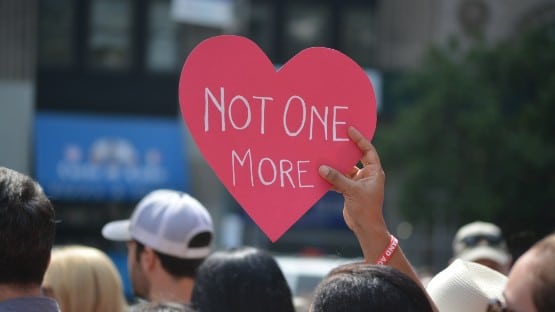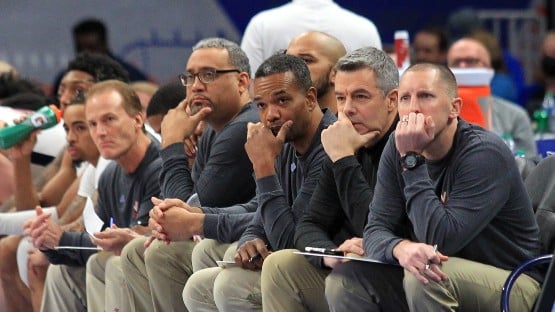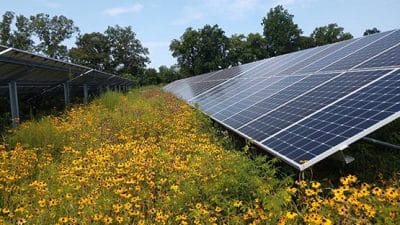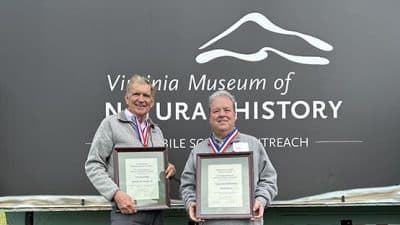
A working group in Charlottesville has released a report aiming to increase safety and decrease gun violence in the city and at the University of Virginia, and as expected, the changes won’t happen overnight.
Through meetings, community focus groups and interviews and input from local experts, the working group has identified trends in local safety disruption, mental health needs, resource accessibility and existing access to community resources.
Some of the group’s recommendations are already being implemented; others will take a phased approach with implementation ranging from 18 months to six years.
“The community safety working group took up their charge during a difficult time, with violence hitting close to home on Grounds and in our community,” said UVA President Jim Ryan. “Their comprehensive recommendations provide tangible steps toward a safe, thriving community, and I look forward to working with our partners to implement their proposed actions.”
The University of Virginia, in partnership with Albemarle County and the City of Charlottesville, have now established a smaller group who is tasked with implementing the report’s findings.
“This dynamic community safety working group partnership between local government, the university and community advocates is exactly what the President’s Council seeks to foster,” said Cristine Nardi, co-chair of the President’s Council on UVA-Community Partnerships. “The more we do this work together, the more we see the intersectionality across all of the issues we seek to tackle – from affordable housing to workforce development to public health access to early childhood education to community safety – and the more we understand the assets and strengths we collectively bring to the critical project of stewarding a region where everyone can thrive.”
About the working group
Convened in March 2023, the community safety working group includes 21 members of the greater Charlottesville community, including representatives from UVA faculty, staff and students; UVA Health; Albemarle County; the City of Charlottesville; and other local organizations, churches and groups.
The community safety working group is one of six working groups within the President’s Council on UVA-Community Partnerships.
Since its inception, the community safety working group has been developing goals and recommendations for solutions to community safety challenges in the area.
Recommendations
Goal 1: Create protective community environments
The first goal aims to create a safe and productive community environment around gun ownership and develop strong plans for crisis response.
Recommendations within this goal include educating and informing community members on responsible and safe firearm ownership and conflict resolution, building positive relationships between law enforcement and the community, establishing community crisis response teams and creating a community crisis response plan.
Three recommendations to support this goal are already being implemented:
- Project Safe Neighborhoods – The UVA, Albemarle and Charlottesville Police Departments are coordinating with the Office of the U.S. Attorney for the Western District of Virginia to leverage the Project Safe Neighborhoods designation, increase community engagement and access federal funding and resources. Per the recommendations, partnership is underway with UVA School of Law clinics and the Frank Batten School of Leadership & Public Policy to create and/or support a clinic that focuses on laws and policies related to community safety.
- Community-engaged courses – “The Wicked Problem of Gun Violence,” a class offered at the Batten School in the fall 2023 semester, prompted students to research the societal origins of gun violence and learn more from politicians, policymaker and public safety professionals about the policies, practices, and programs that have been successful in mitigating gun violence in cities including Baltimore, Richmond and Washington, D.C. Additional courses are being planned for future semesters.
- Crisis response teams – Albemarle County has implemented the Human Services Alternative Response Teams, or HARTs, which provides support from paramedics, police officers and social service providers for people with behavioral health emergencies. Implementation began in June 2023, and more than 120 people have received services in the last six months. Similar programs are being explored at the University and in the City of Charlottesville.
Goal 2: Enhance place-based programming and access to care
The second goal focuses on easing physical and financial access to mental and physical health care for community members, while also connecting more University-based health resources to the community. Campaigns, support groups, mental health initiatives and other services nested within this goal aim to cultivate a broad network of care and access for the community.
The following programs are in the discovery and development phase:
- Pediatric neurodevelopmental and behavioral health clinic – UVA Health is partnering with Sentara Martha Jefferson Hospital to open the new clinic in fall 2024, directly off U.S. 29 in northern Albemarle County. The clinic will triple the number of pediatric mental health providers at UVA from six to 18 and expand access by bringing together developmental pediatricians, pediatric psychologists and integrative medicine specialists.
- Fifeville services – The University has purchased approximately five acres at the corner of 9th Street Southwest and Cherry Avenue that includes Oak Lawn, a historic home. UVA Health will partner with community groups to explore how to best use the property to develop a community health care hub that serves Fifeville and communities across Charlottesville and beyond.
- 6th Street clinic –Scheduled to open in late 2025, the clinic will include primary care for adults and children along with prenatal care. Additional services at the clinic are being explored based on input from 6th Street residents.
- Hospital-based violence intervention program – UVA Health is exploring the development of a program to prevent violence in the community, in partnership with local community groups and law enforcement.
Goal 3: Improve coordination and information flow among community members, service providers, schools and law enforcement
The third goal centers on methods of communication between the community and services in the greater Charlottesville area, including caregiver network support, information hubs, data sharing and resource apps. Resident input gathered in town hall meetings and focus groups is also prioritized under this goal.
Several working group recommendations to support the goal are already in the works:
- Charlottesville/Albemarle Youth opportunity center website – Launched in spring 2023 in response to community requests, the website provides timely information on opportunities related to education, recreation, youth-focused mental health, employment, and other opportunities in the community. The UVA Equity Center will continue to map these resources in the community in partnership with the Charlottesville Area Network Dedicated to Youth Development, or CANDYD.
- Communitywide data sharing – The UVA Equity Center and the Karsh Institute of Democracy are in the process of hiring a data scientist who will integrate various data sets to identify trends and patterns among youth violence in the region. A key example of this work is the continuation and enhancement of the Stepping Stones report.
- Community resource app – Leadership from City of Promise, the United Way of Greater Charlottesville and the UVA Equity Center are working together to develop a community resource app that will include a map of available resources, including economic opportunities, housing, activities for youth, education and behavior health services.
Goal 4: Connect youth to caring adults and activities
The final goal in the working group’s report advises on ways to connect youth in the community with adults and activities that will support their education, health and well-being, and foster two-way communication between schools and families.
A community mentorship program is already in the works, with UVA football players mentoring detained youth in the Blue Ridge Juvenile Detention Center.
Other recommendations to support the goal include staffing violence-interrupter models to break the cycle of violence, expanding academic support and tutoring programs within schools and programming for at-risk youth, and reinforcing reentry programs and support for youth reintegrating after criminal justice involvement.










